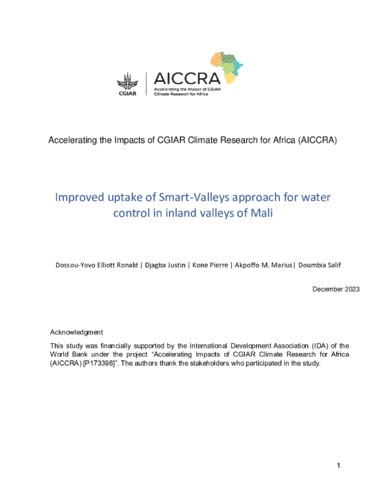Improved uptake of Smart-Valleys approach for water control in inland valleys of Mali
Abstract
This research examined how the Smart-Valleys approach for water control was disseminated, its impact on rice yield, farmers' income, and food consumption score, as well as the farmers' perception of its advantages in Mali. In total, 469 farmers, including 68% women and 35% youth, adopted the Smart-Valleys approach across 10 sites, covering an area of 61.9 hectares. The primary dissemination methods included on-farm demonstrations, farmers exchange days, capacity building for extension agents and young service providers, along with continuous support to farmers during implementation. In comparison to sites without development, the Smart-Valleys approach led to a 1.7-ton/ha increase in farmers' yield, a $410/ha rise in income, and a 4-point improvement in food consumption scores. When considering cumulative benefits, Smart-Valleys resulted in a total increase of 105.23 tons in rice production and a $25,379 gain in farmers' income. Farmers noted enhanced soil moisture conservation and biodiversity in Smart-Valleys sites and attributed their increased investments in health and children's education to the improved yield and income facilitated by the Smart-Valleys approach.

